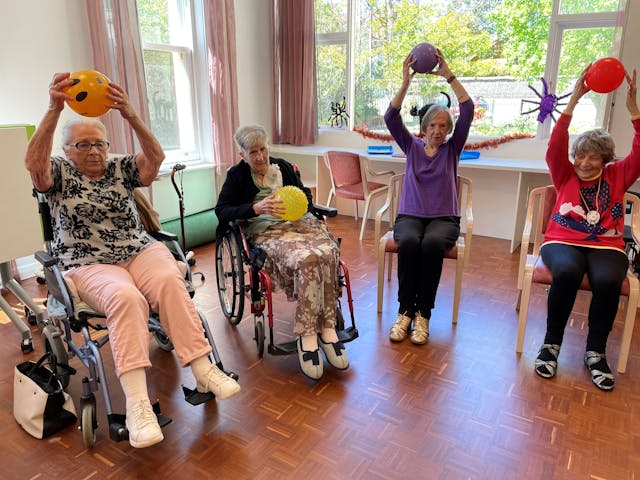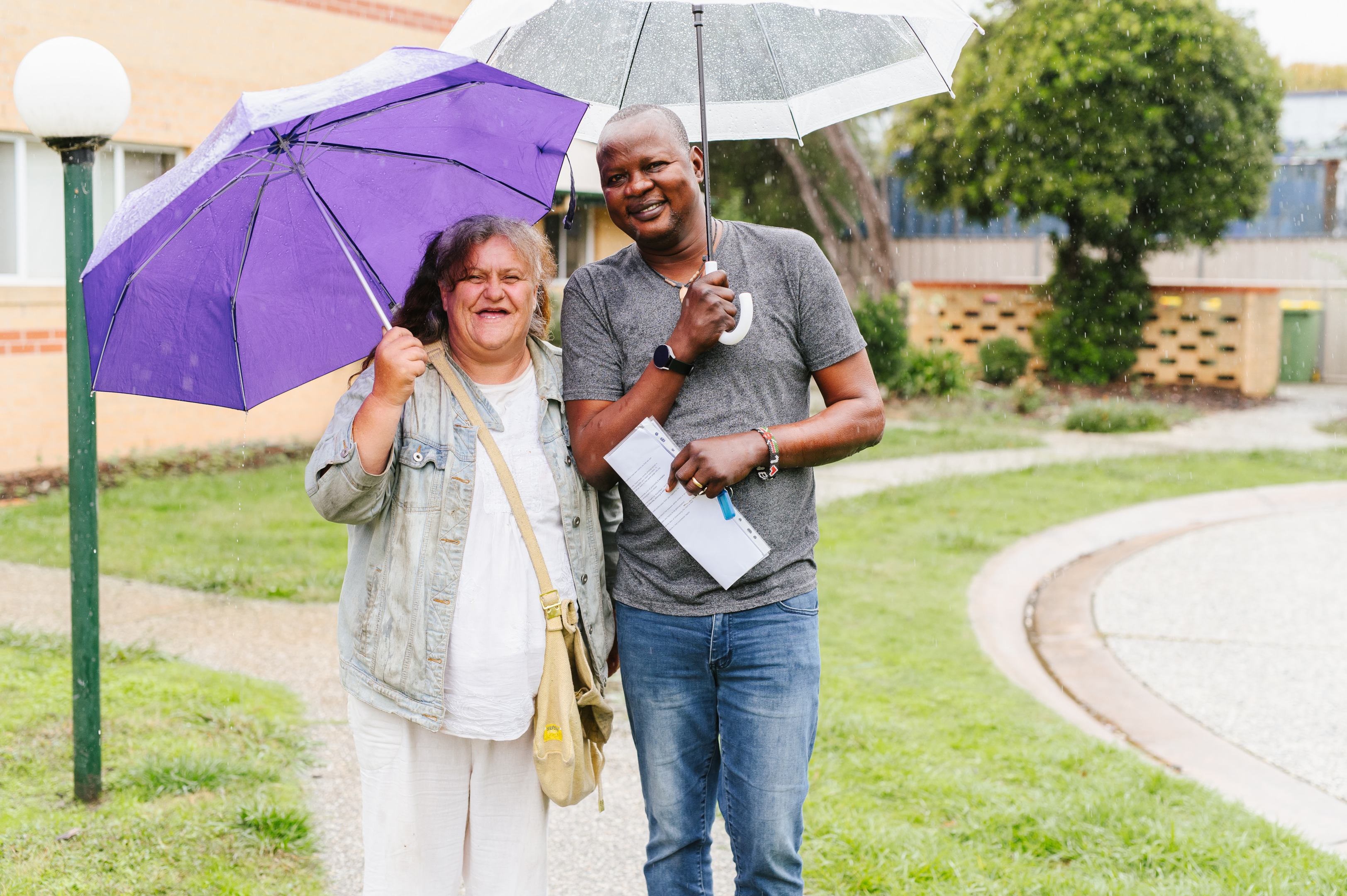
Aging gracefully often involves considering the best aged care providers in Australia. With a plethora of options available, it’s crucial to understand the key factors when selecting a residential aged care provider that meets your loved one’s needs and preferences. This comprehensive guide delves into the essential aspects to consider, ensuring a smooth transition into quality general and residential aged care services.
1. Understanding Aged Care Providers in Australia
Understanding residential aged care providers in Australia involves navigating a diverse range of services tailored to meet the unique needs of older individuals. Residential aged care facilities offer round-the-clock support, accommodation, and healthcare services for seniors who require full-time care and assistance with daily activities.
These facilities often provide a safe and comfortable environment, complete with trained staff and medical professionals to ensure residents’ well-being and quality of life.

On the other hand, home care packages cater to individuals who prefer to remain in their own homes while receiving aged care services. These home support packages are customisable and may include personal care, household assistance, nursing care, and allied health services.
Respite care, another vital service, offers temporary relief and support for primary caregivers, allowing them to take breaks while ensuring their loved ones receive professional care in a respite care facility. Understanding the differences and benefits of these services helps families make informed decisions based on their loved one’s specific needs and preferences.
2. Quality Services: A Non-Negotiable Factor
Assessing the quality of care provided by a general and residential aged care services in Australia is crucial for ensuring the well-being of your loved one. This involves evaluating accreditation, compliance status, and reviews from residents and families to gain insights into the level of care provided.

Additionally, considering the expertise and qualifications of staff members, including caregivers, nurses, and allied health professionals, is essential in determining the overall quality of services offered.
Prioritising quality care guarantees that your loved one receives personalised and compassionate support, leading to a positive and fulfilling aged care experience.
3. Financial Considerations: Fees and Funding Options
Exploring the financial aspects of aged care in Australia involves understanding the various fees and funding options available. These include means-tested care fees, which are based on an individual’s financial situation and contribute towards the cost of care and accommodation. Accommodation costs cover the living expenses and amenities provided by aged care facilities, with different pricing structures based on room types and locations.

Basic daily fees are another component, covering day-to-day living expenses such as meals, laundry, and utilities. Additionally, exploring potential government funding options, such as subsidies and grants, can help offset the costs of aged care services and make quality care more accessible to eligible individuals and families. All of these matters are regulated and mandated by the Australian Government through funding support.
4. Personalised Care Plans: Tailoring Services to Individual Needs
Discover how aged care providers customise care plans to meet the unique needs and preferences of each resident, ensuring a comfortable and supportive residential care environment.
These personalised care plans are developed through comprehensive assessments that take into account the resident’s medical history, mobility levels, dietary requirements, social preferences, and more.

By tailoring services to individual needs, providers can offer specialised assistance in areas such as medication management, mobility support, personal care, and emotional well-being.
This personalised approach not only promotes independence but also enhances the overall quality of life for residents, fostering a sense of belonging and empowerment.
5. Location Matters: Access to Services and Community Connections
When choosing a residential aged care facility, consider the location’s impact on access to services and community connections. Proximity to medical facilities, pharmacies, and allied health services can ensure timely and convenient healthcare support for residents.

Additionally, facilities located in vibrant communities with access to parks, shops, and cultural activities offer opportunities for social engagement and connection with the broader community. The location also plays a role in maintaining family connections, as ease of visitation can contribute to the well-being of both residents and their loved ones.
6. Accreditation and Regulatory Compliance
Ensuring that the chosen aged care provider is accredited and compliant with Australian regulations is paramount in guaranteeing a standard of care that meets industry requirements. Accreditation indicates that the facility has undergone rigorous assessments to assess the quality and safety of care provided just like the NDIS, My Aged Care and other government agencies .
It also signifies adherence to best practices, protocols, and guidelines set by regulatory bodies. By choosing an accredited provider, families can have confidence in the facility’s commitment to maintaining high standards of care and continuous improvement.
7. Staffing and Caregiver Qualifications
Assessing the qualifications and expertise of caregivers and staff members is crucial in ensuring that your loved one receives high-quality care. Look for facilities that have well-trained and experienced staff, including registered nurses, personal care assistants, and allied health professionals.

Staff-to-resident ratios, ongoing training programs, and staff retention rates are also important factors to consider. Effective communication, empathy, and a person-centered approach are qualities to look for in caregivers, as they play a significant role in providing personalised and compassionate support to residents.
8. Additional Services and Programs
Explore the range of additional services and programs offered by aged care providers, such as dementia care, therapy services, and social activities, enhancing residents’ overall well-being.
These additional services cater to diverse needs and preferences, providing opportunities for residents to engage in meaningful activities, maintain cognitive abilities, and foster social connections.
Facilities that offer a variety of programs tailored to different interests and abilities contribute to a vibrant and supportive community environment for residents.
9. Community Feedback and Reviews
Taking into account feedback and reviews from other families and residents who have experienced the services of the aged care providers offers valuable insights into their experiences.

Online platforms, family councils, and facility tours are avenues to gather feedback and assess satisfaction levels. Positive reviews highlighting quality care, attentive staff, and engaging activities are indicators of a reputable and reliable aged care provider.
Conversely, negative feedback regarding issues such as communication gaps, staff turnover, or facility maintenance can raise red flags and prompt further inquiry before making a decision.
Government Support and Eligibility Criteria
Understanding the eligibility criteria for government-funded aged care programs and how to access financial support is essential in affording quality care services. Programs such as the Home Care Packages Program and Residential Aged Care Subsidy provide financial assistance based on individual needs and circumstances.
Eligibility criteria may include assessments of care needs, income and asset tests, and residency requirements. Navigating the government support system with the assistance of aged care advisors or advocacy services can help families access the appropriate funding and services for their loved ones.
10. Planning for the Future: Long-Term Care Needs
Consider the long-term health care needs of your loved one and how aged care providers can support them as their requirements evolve over time.
Collaborate with healthcare professionals, aged care advisors, and family members to develop a comprehensive care plan that addresses current and future needs.
Factors to consider include potential changes in mobility, cognition, medical conditions, and preferences for end-of-life care. A proactive approach to planning ensures continuity of care and peace of mind for both residents and their families.
11. Maintaining Independence: Balancing Support and Autonomy
Find and maintain a balance between providing necessary support and maintaining your loved one’s independence, allowing them to live life on their terms.

Aged care providers should encourage autonomy and empower residents to make choices regarding their daily routines, activities, and lifestyle preferences.
Supportive strategies such as assistive technology, mobility aids, and individualised care plans promote independence while ensuring safety and well-being.
Respect for residents’ dignity, privacy, and decision-making autonomy is fundamental in fostering a sense of control and self-worth.
12. Other Helpful Things To Consider In Selecting Aged Care Providers in Australia
Transitioning to Aged Care: Making the Move Smooth
Prepare for the transition to an aged care home by creating a checklist, visiting potential facilities, and addressing any concerns or questions along the way. Involve your loved one in the decision-making process and provide emotional support during this period of change.
Communicate openly with aged care providers, healthcare professionals, and support networks to ensure a smooth transition and seamless continuity of care. Establishing a familiar and welcoming environment in the new living arrangement helps ease adjustment and promote a sense of belonging for residents.
Embracing Change: Supporting Families Through the Process
Recognise the emotional aspects of older people transitioning to aged care and provide support to families, ensuring a smooth and positive experience for everyone involved.
Open communication, family meetings, and counselling services can help address concerns, manage expectations, and foster a collaborative approach to care.
Celebrate milestones, maintain regular contact, and engage in meaningful activities to strengthen family bonds and connection with the resident. A supportive and united family network contributes to a nurturing and inclusive aged care environment.













